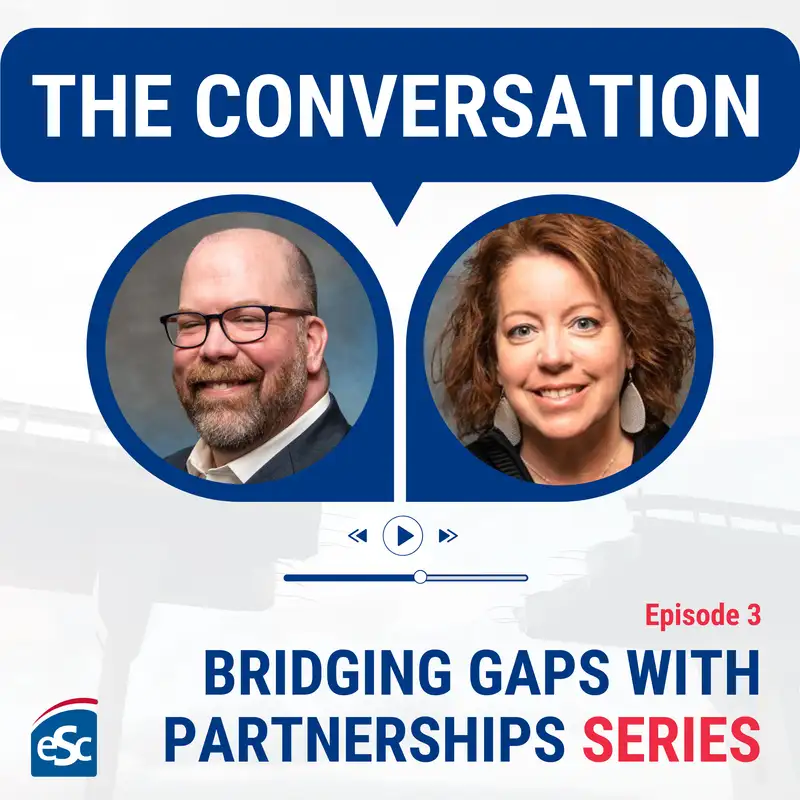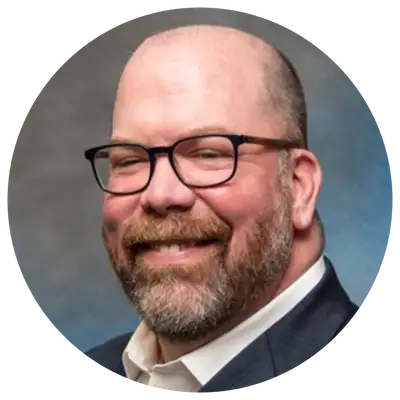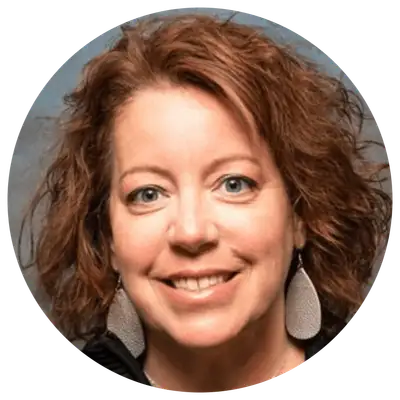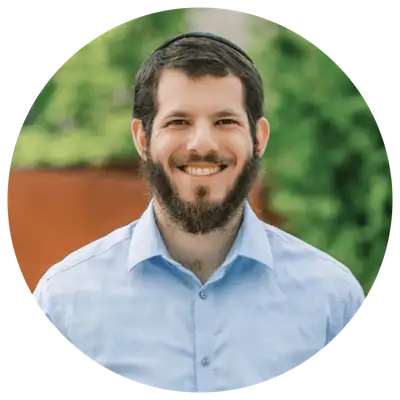
Food, Friendship & Belonging: The Heart of Kitchen of Life
Speaker 1:
This episode of The Conversation is part of a new series, Bridging Gaps: Partnerships and Educational Adjacent Organizations. In this series, we'll highlight community partnerships that are creating impactful change in our community. Now back to the episode.
Shea Kaltmann:
We're showing our students that as a community, we're showing up for you, we're here to support you, you have our backing, and that we want you to succeed.
Speaker 1:
That was Shea Kaltmann, director at Kitchen of Life, a nonprofit organization located in Columbus, Ohio. On this episode of The Conversation, Rachel and John will learn how Kitchen of Life is building resiliency and strengthening interpersonal skills through the culinary arts. Let's dive in.
MUSIC:
(Instrumental music)
John Hambrick:
Hello and welcome back to The Conversation, Ohio voices in education, igniting ideas, inspiring change. Welcome back. And along with my esteemed colleague, Rachel Daniels, here as a part of The Conversation, we're shifting into partnerships and talking about how we have organizations in our community having high impact with community members and specifically with our students. And so Shea Kaltmann, director of Kitchen of Life, is joining us today. Super grateful for you to be here today. And Shea, welcome to The Conversation.
Shea Kaltmann:
Thank you. Super happy to be on. Thank you for having me. I'm excited to let you know a little more about Kitchen of Life and let the community know about what we do over here.
John Hambrick:
Outstanding. We appreciate it. Heck yeah. Why don't you tell us a bit about Kitchen of Life and how it came to be?
Shea Kaltmann:
I'd be happy to. So I grew up in Columbus and I moved back in the middle of 2020 right before the pandemic started, and I was helping out at Kitchen of Life's sister organization, which is called LifeTown Columbus. It's a wonderful program and organization which has been helping students throughout Columbus, Ohio for over 16 years. And right as I came, COVID happened and everything was shut down, and I was able to see firsthand the effect that this has had on youth and on the students that we were serving, and really just all the difficulties caused because of the pandemic. I really wanted to create a way to build resiliency and self-esteem in students and in youth to help them feel good about themselves, to help them learn about all the opportunities, and build their resilience to help them overcome the challenges that they face.
Got off the ground and started planning. I met with a wonderful organization called GPS Solutions. They are a curriculum developer and they kind of helped us get started on developing our curriculum on social-emotional skills that we can implement and we could teach while the students are taking part of this program. Then we met with Dr. Stephen Gavazzi, who is a professor at Ohio State. He's director of CHRR at Ohio State. He also helped us build a framework of what we wanted to do and what we wanted to accomplish through our curriculum. And then he helped us, referred us to the [inaudible 00:03:51] Research and Evaluation team to really say, "Hey. Okay, we're making this curriculum. We want to teach resiliency. We want to help students with mental health and their emotional wellness and educate them about this. So what are our goals and what do we want to evaluate and what do we want to be accomplishing with every single student that comes through the door?"
Rachel Daniels:
Wow. You have a compelling why that I think resonates with everyone who's listening, and it's incredible to think about the way that you're supporting the building of community and relationships. I think our listeners would be interested in hearing you walk us through a day at Kitchen of Life through the eyes of a student. So paint us a picture, if you will, for what a student might go through when they come in to have this rich learning experience.
Shea Kaltmann:
Sure. So Kitchen of Life is primarily for middle school and high schoolers, however we are also working on having it for younger grades as well. So the students arrive, you'll make yourself a name tag, you'll say your name and just kind of how you're feeling being here in this space, if you're feeling good, excited, tired, hungry, whatever it is. And then we'll just talk about Kitchen of Life and the goals for the day. So each day, there's a different topic of what you will be learning here. And Kitchen of Life, our curriculum is based on the self-determination theory and we teach students about their basic psychological needs, which are belonging, autonomy, and competence.
So the students will go upstairs with the volunteers, so it's a corporate group, and they're excited to come and work with the students on the recipe. It's step-by-step and the students work together as a team making a dish. On Belonging Day, they're making breakfast muffins, and there's different and different challenges that we'll put in throughout the recipe so that everyone's involved, everyone has a role. There's different challenges and activities while we're cooking to practice the theme of the day. Afterwards, we go downstairs and we'll kind of regroup. We have our journals that we can write and journal how today went, and then we talk about it as a group and just get everyone's thoughts. And then you'll have lunch, and then you'll come back three more times, and we'll end off with a graduation celebrating the success and achievements that students are having at Kitchen of Life.
John Hambrick:
Full transparency for our listeners, the folks here at The Conversation have visited Kitchen of Life and we've had that experience, and we most certainly walked through that portion and talked about belonging and really kind of helped with that connectedness. And so I know upon reflection with our coworkers, we felt that this was a very impactful gathering and an impactful exercise. I'm curious, Shea, do you have examples of how this curriculum has impacted the students that have participated here?
Shea Kaltmann:
Yes. So I'm glad to hear that you had a great time and an impactful experience at Kitchen of Life. Yeah, we have seen throughout the program that students change. From the first session to the last one, I've seen students really just building up their confidence, coming out of their shell a little bit, speaking to the volunteers. Students have told me how they've made new friends at Kitchen of Life and teachers have told me how students have been so motivated by the program to just do better in class, work on helping with just getting their homework in on time. And the parents have told me how when there's Kitchen of Life that day, their kids jump out of bed, are really excited to go to school that day. We see a change all the time in the students and how much they're growing and they're gaining from the program, and also just learning to bake and learning to bake and cook all the new things at home.
I've just met people in the community I haven't known before, and then they've let me know that their kids are making the foods that they learned at Kitchen of Life, which is really exciting. We saw 70% success in teaching the students material that we're teaching the students, the students understanding that, and just increasing their awareness of the ideas we're teaching them and also changing of their attitudes towards the information that we're teaching.
Rachel Daniels:
Shea, you noted that you've seen some impact in the community, so I'm going to push you a little further to see if you can give us other examples of the way that Kitchen of Life has kind of shown up in the Bexley community and outside of it.
Shea Kaltmann:
Yeah. So part of the program is our volunteers because we want the students coming through the program to learn about all the opportunities that they can get when they graduate and post-school, and to find jobs and to find success in their next stage in life. So the community has really come together. It wouldn't be possible without our volunteers who assist the students while cooking their recipes, help everyone stay on track. And the students know if they get a little distracted, the volunteers will kind of help them stay focused. And also, just teaching them about their careers. So if they're working in real estate, what's it like being a real estate agent? If I work in retail, talk to students about maybe this is a career they want to pursue. If they're a college student, what are they studying in college? Do they enjoy it? Do they not enjoy it?
So really, having the whole community come together to support our students is a really critical and integral part of the program because we're showing our students that as a community, we're showing up for you. We're here to support you, you have our backing, and that we want you to succeed. And that's really important just for students to be motivated, to be resilient, to know, and to really experience firsthand that there's people that care and that want them to succeed and are rooting for them. So just having the community come together to show that for the students is so special, it's so meaningful, and it helps the program and it helps our students grow.
John Hambrick:
You've got a couple of years under your belt. You've had some really impactful experiences for both community members and students. Is there "What's next?" for Kitchen of Life? Do you have exciting plan to share with our listeners?
Shea Kaltmann:
So Kitchen of Life is always working on just expanding access and making sure that we can bring as many students as possible through the door, and just looking out for ways that we can support our students and our schools and our teachers. And this also would not be possible without the educators and the teachers who really bring this all together. So we have a lot of ideas of what we want to do to continue growing because really, this is just the start. But some things that we can do is Kitchen of Life is an experience. It's a physical location where people come together, but bringing this back to school. So activities and things to help prep the students for what they're learning about at Kitchen of Life in the classroom, which could also just help bring a sense of wanting us back to the classroom and help students grow in that while they're in school. So just thinking about curriculums and how we can bring the Kitchen of Life experience back to the classroom, and as well as activities that we can give for students to do at home.
So to bring this back to their family, whether it's just sharing a meal with their family or for the students to engage through food with their community, and activities that they can do to develop their skills and help bring the Kitchen of Life experience into their lives. We'd like to grow. We want to reach as many people as possible, so we'll have to see what's next and how we'll do that. But that is our goal, just to build the resilience of as many students in Columbus and Ohio and beyond as much as we can.
Rachel Daniels:
So Shea, it's now time in our podcast to do what we like to call our call to action. How can our listeners get involved or connected with the Kitchen of Life? You've talked about volunteers. You've talked about the community. You've talked about intersecting with school groups and so forth. So share with us how an eager listener might connect with you and line up some volunteerism.
Shea Kaltmann:
Sure. So if you are an educator, you can reach out via our website, which will be attached in the show notes, kolc.org, Kitchen of Life Columbus. You can reach out to book your school for the Kitchen of Life visits and also just to reach out. We like to see how we can support the community and see what we can do. So that's a great way for an educator to get involved. Or if you want to volunteer, if you're an individual in the community that wants to make a difference in the lives of youth or if you want to bring a group, whether it's your corporate group or any other group you may be involved in if you have a volunteer group, please reach out and we'd love to have you at Kitchen of Life. Or if you have any other ideas, any other ways to partner if someone wants to partner with us, please reach out. We'd love to talk and love to get you involved in supporting our students.
Rachel Daniels:
Well, we've come to the end of another thrilling podcast. Thank you, Shea, for joining us today. From my experience in August at the Kitchen of Life, I can speak to the beauty of the space. Any kitchen with chandeliers, like you have, gets my vote. It's a beautiful environment to cook in. But more importantly, we learned the power of communal cooking in our time together with you back in August. So to our listeners, we say thanks for joining in. For John, this is Rachel. Let's keep the conversation going.
Creators and Guests


